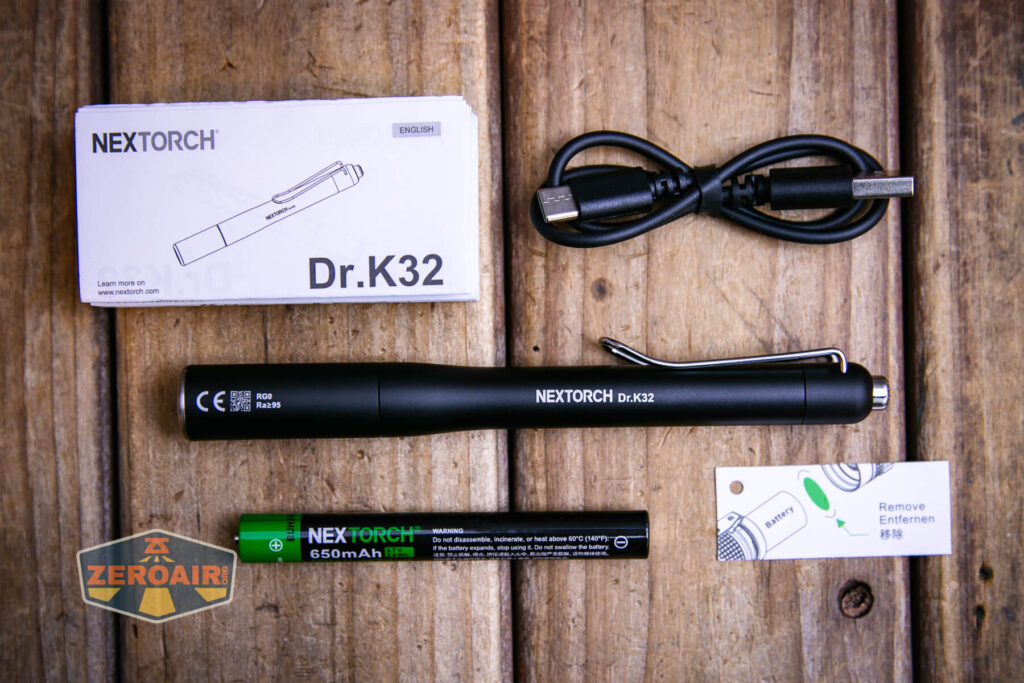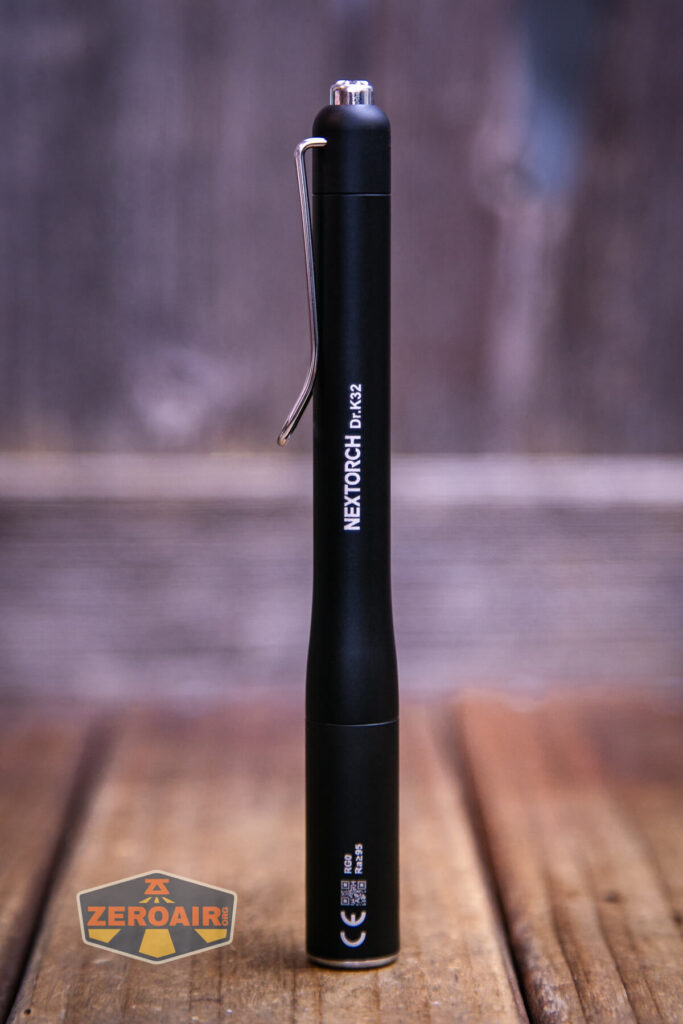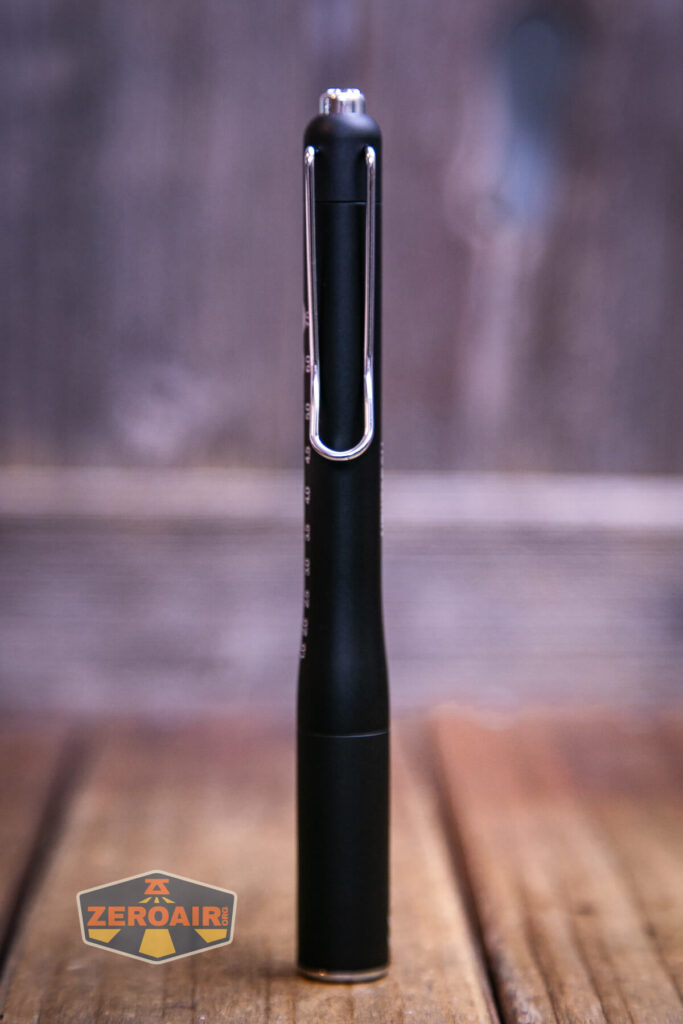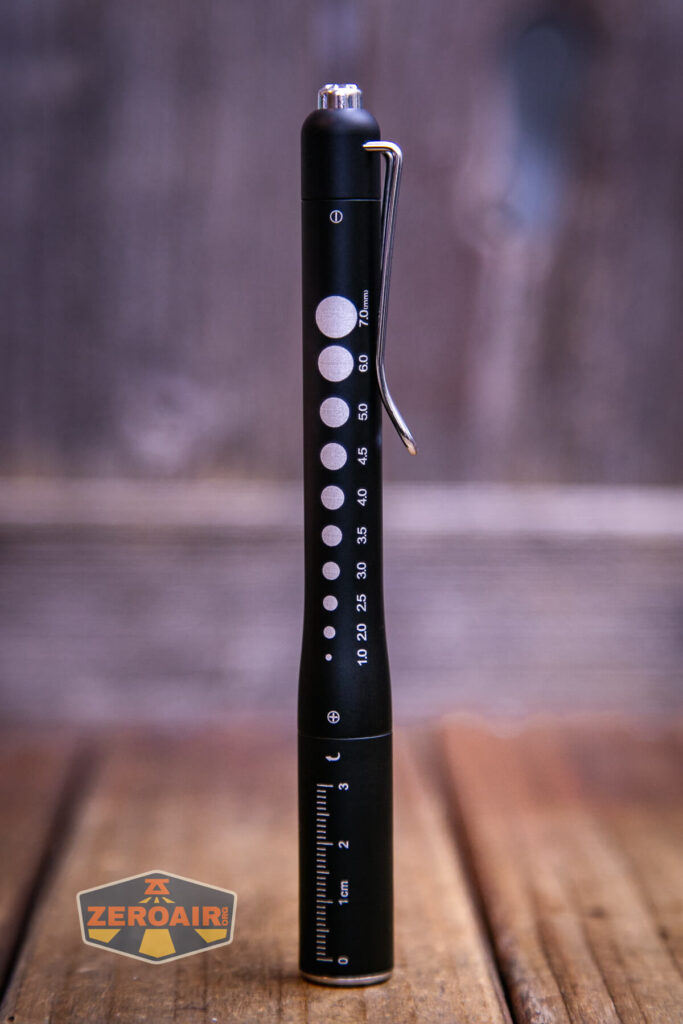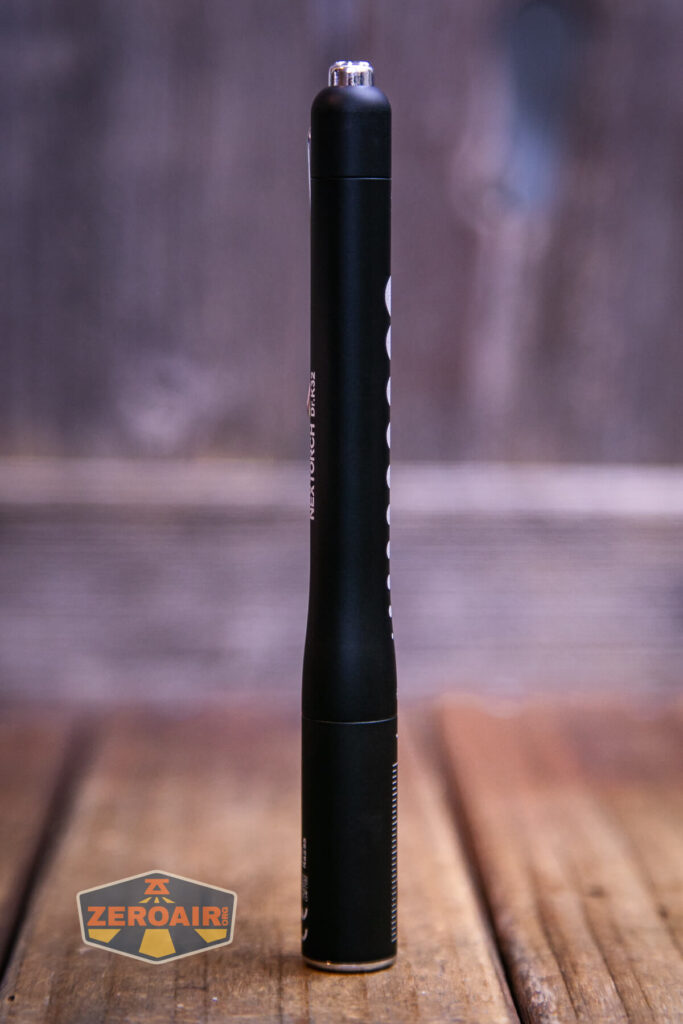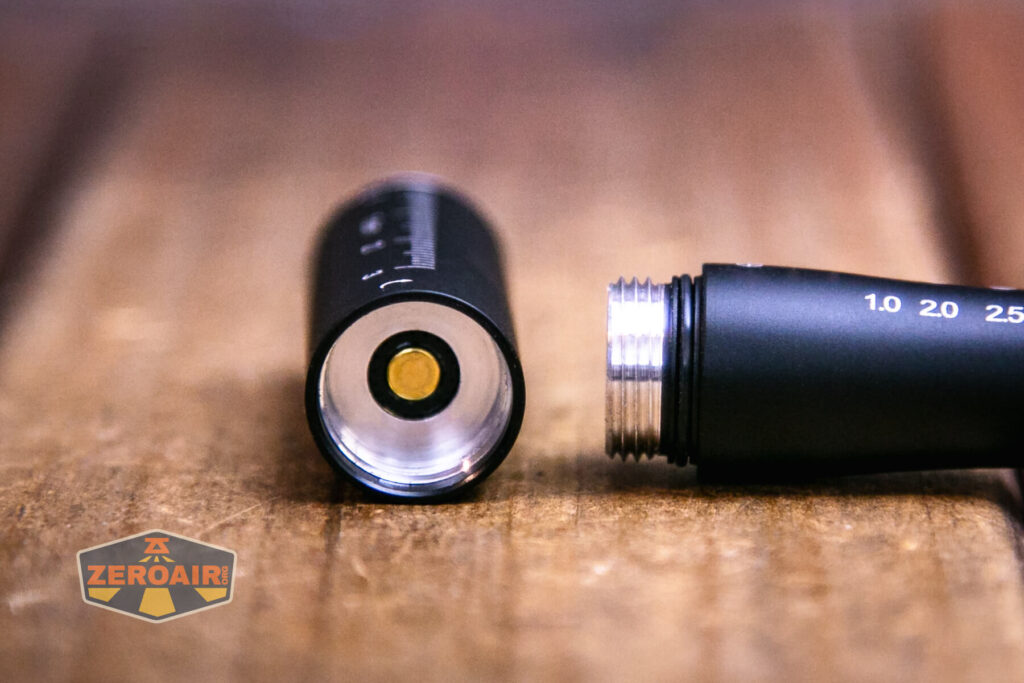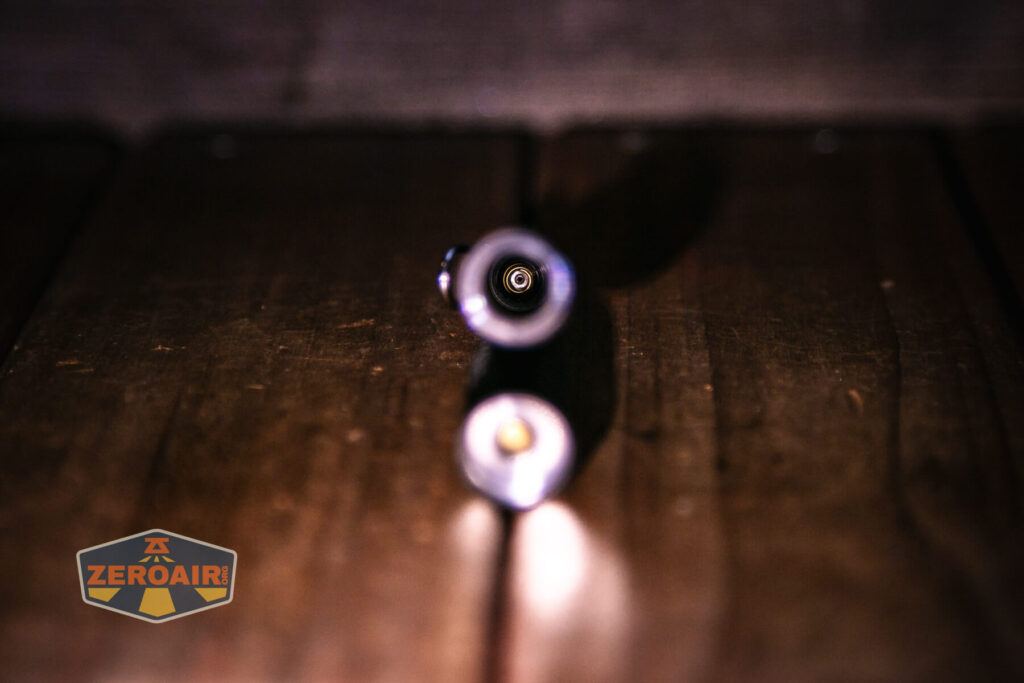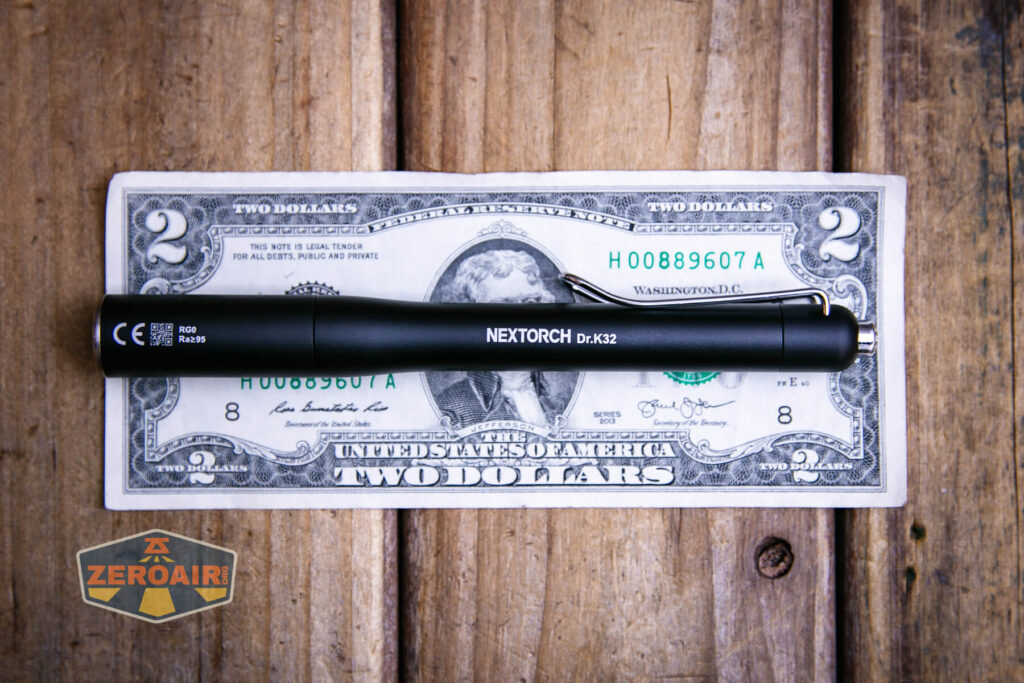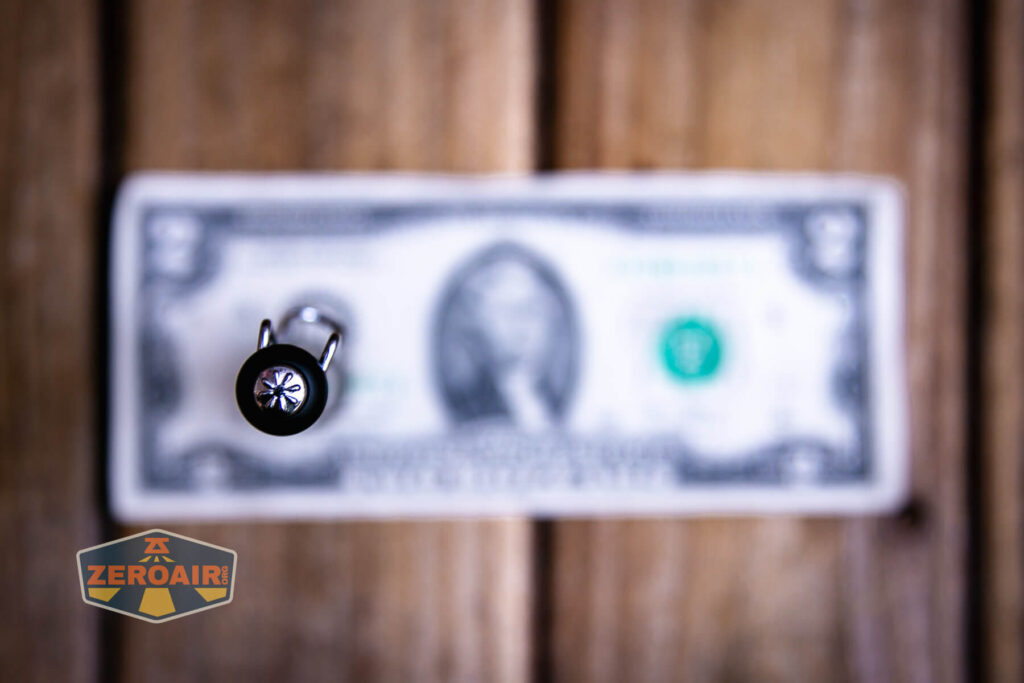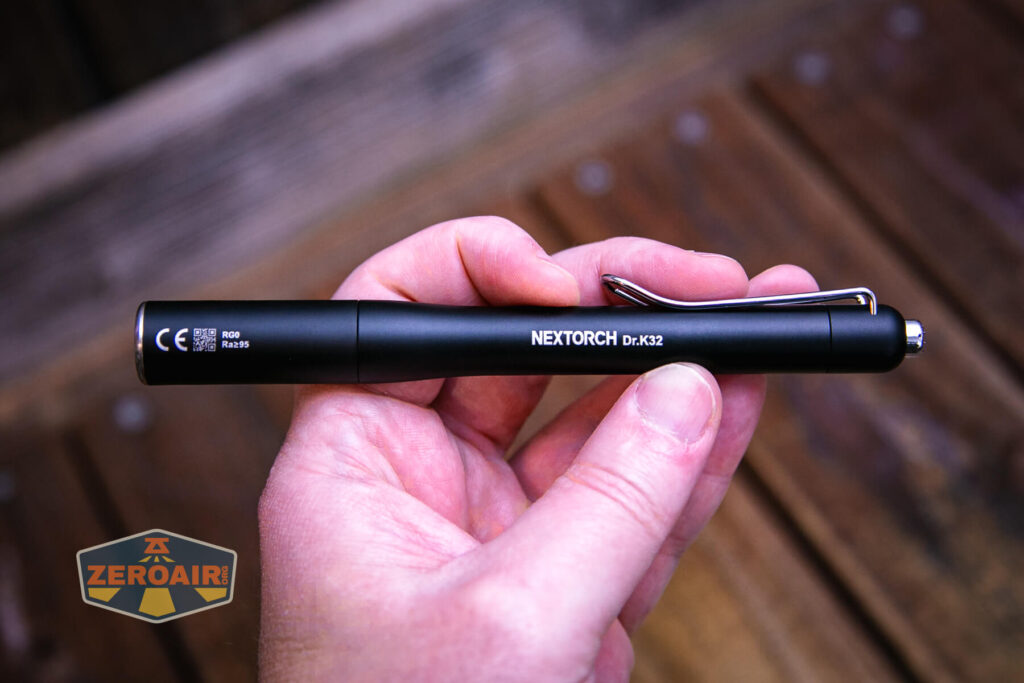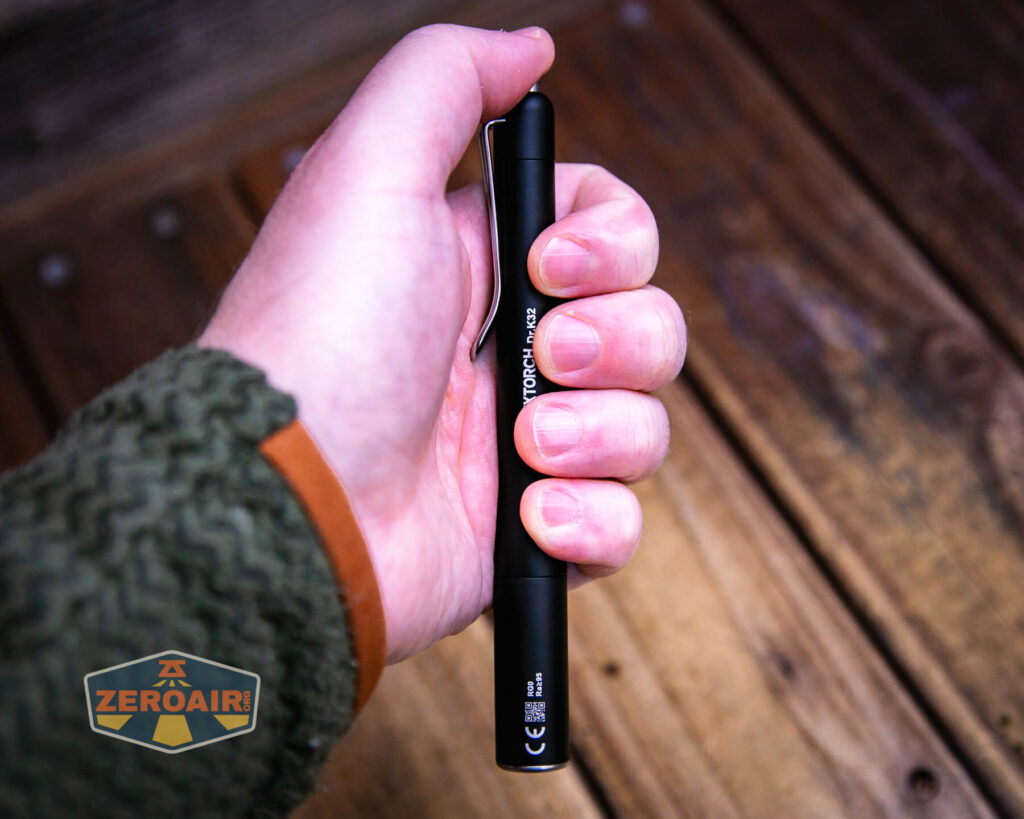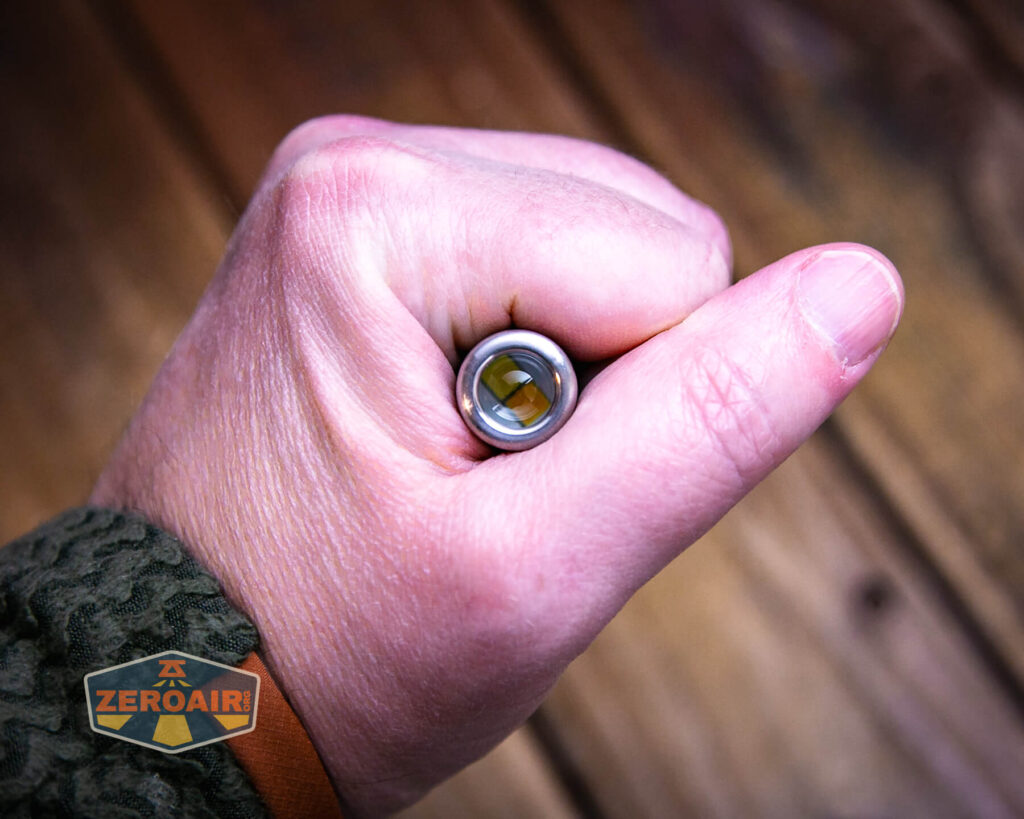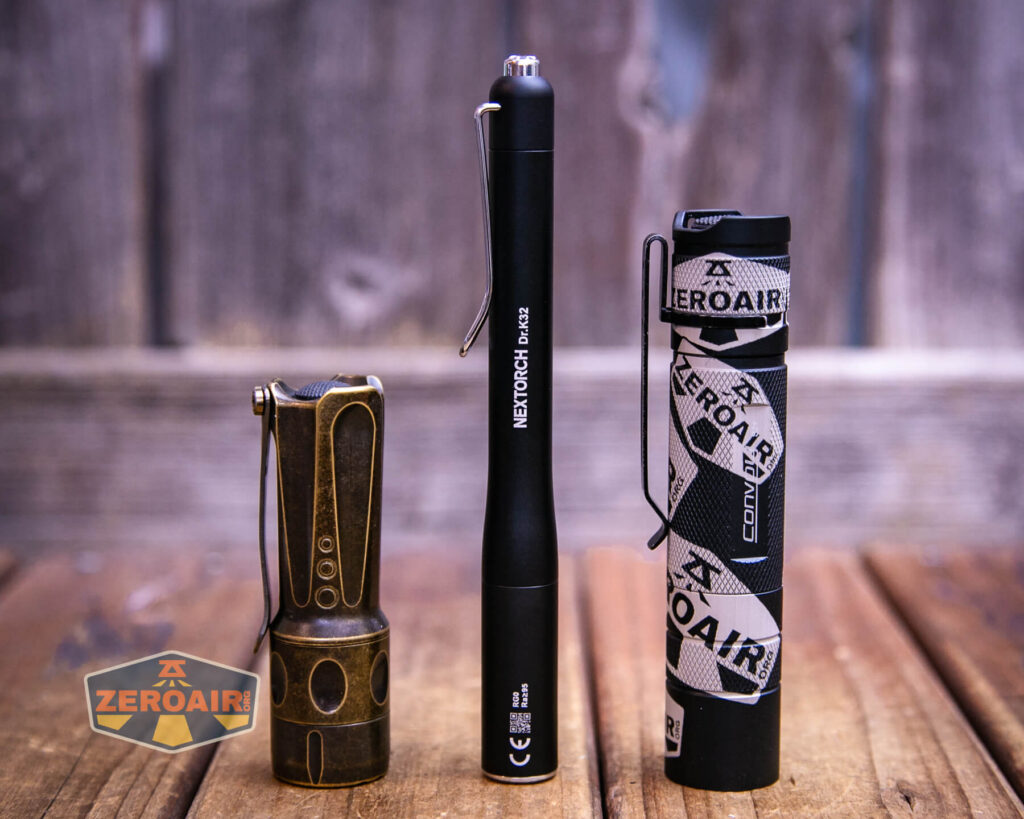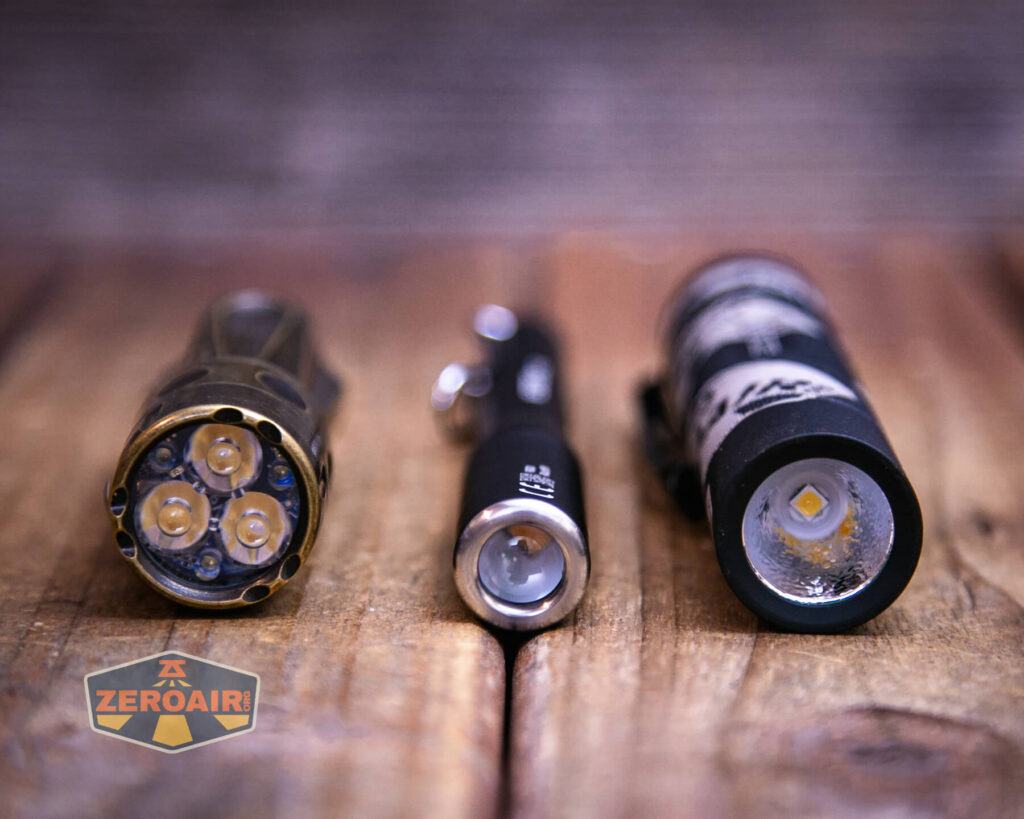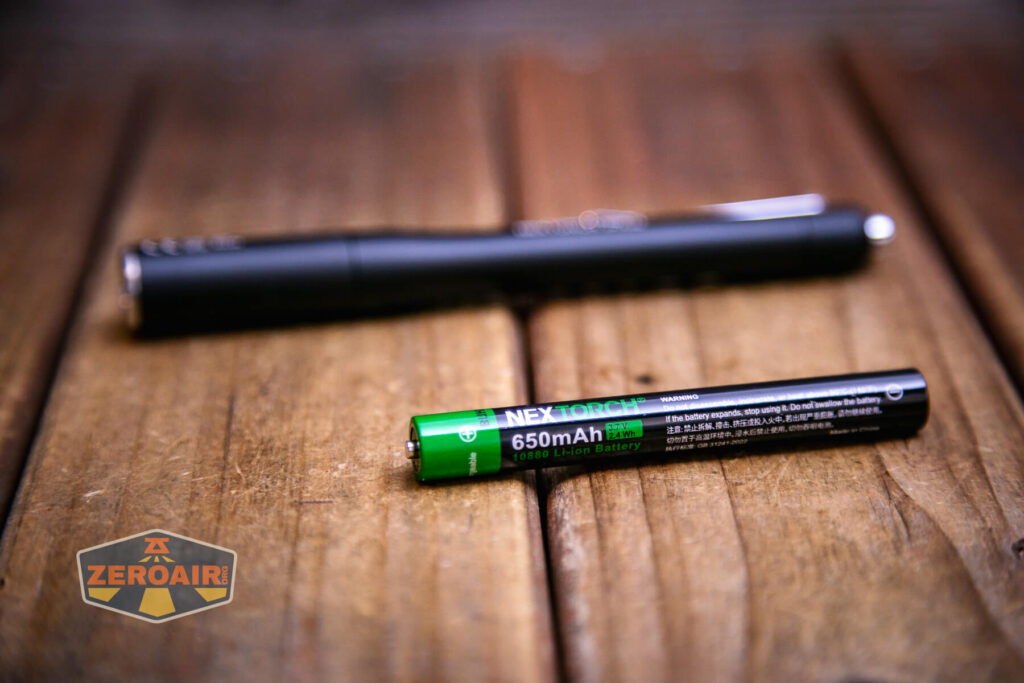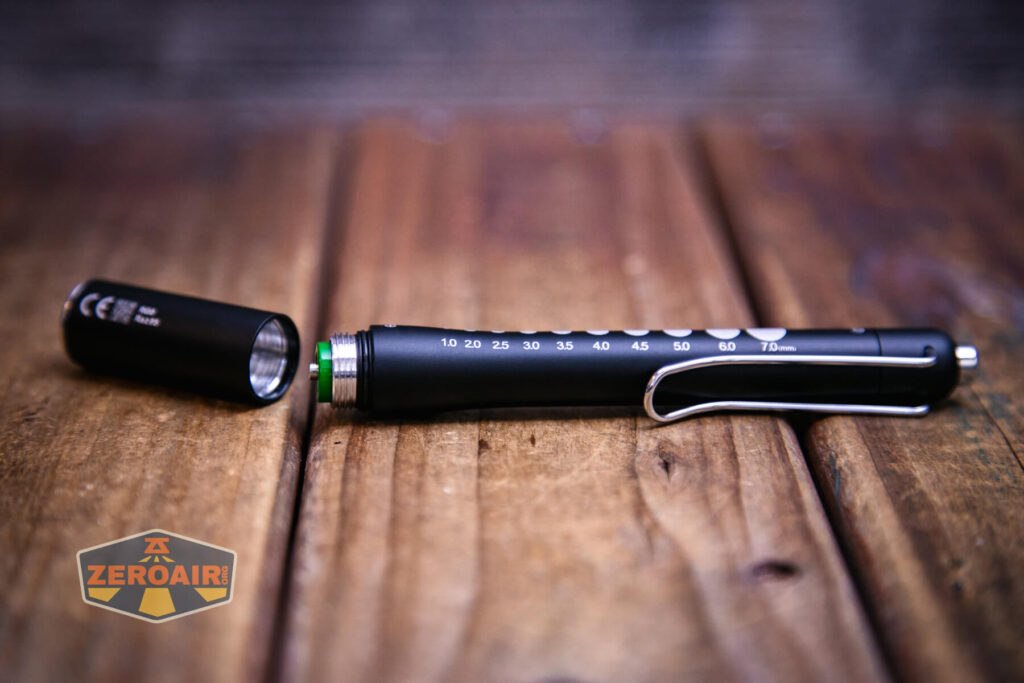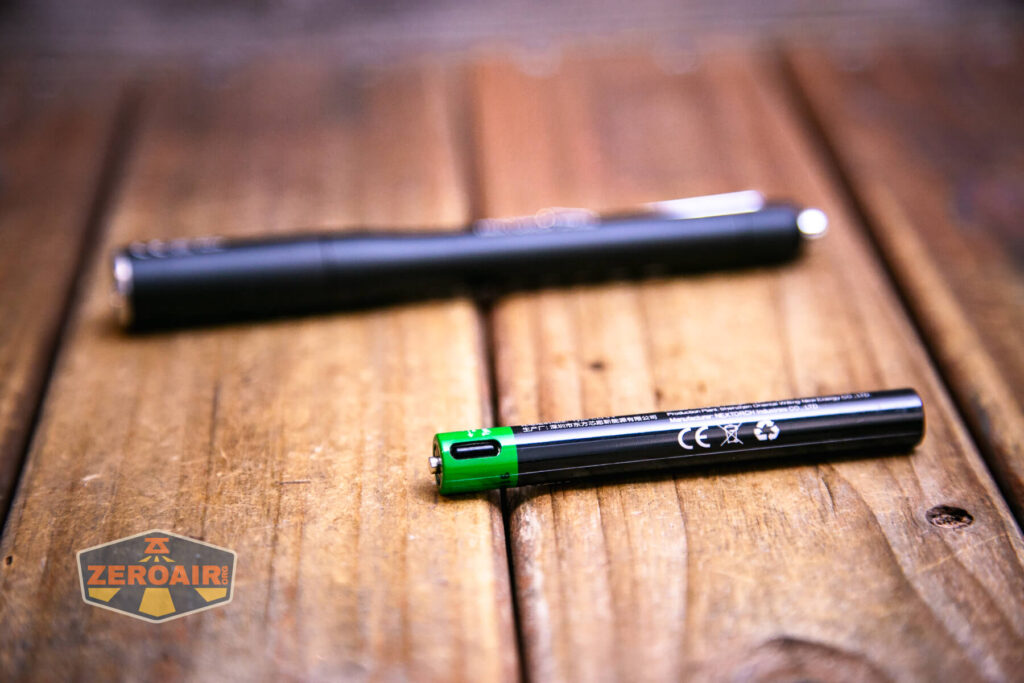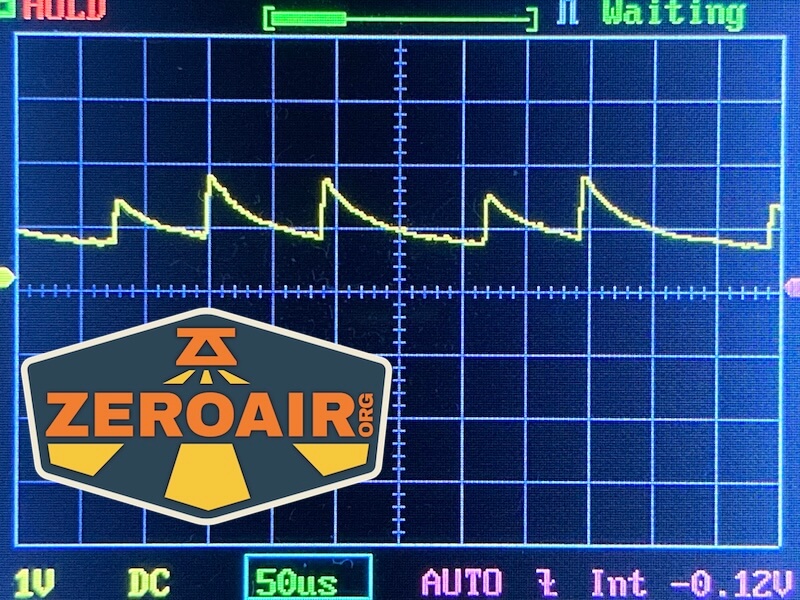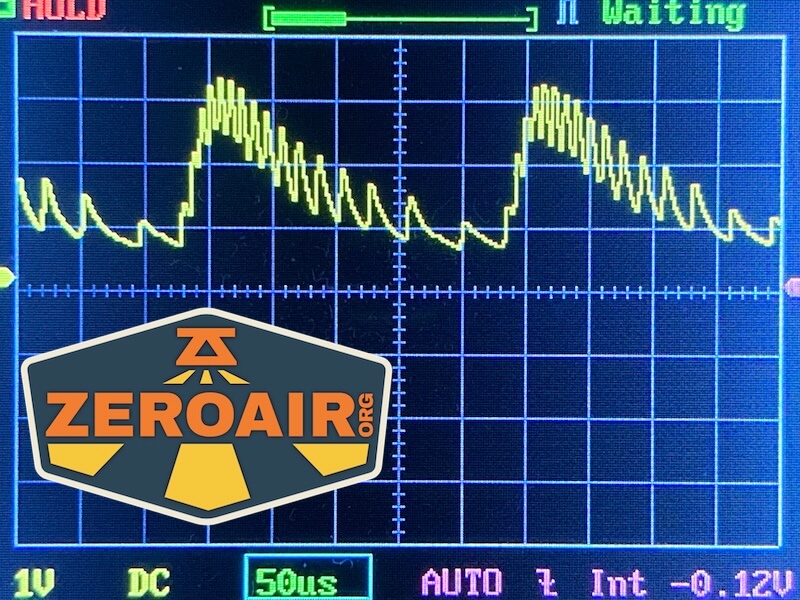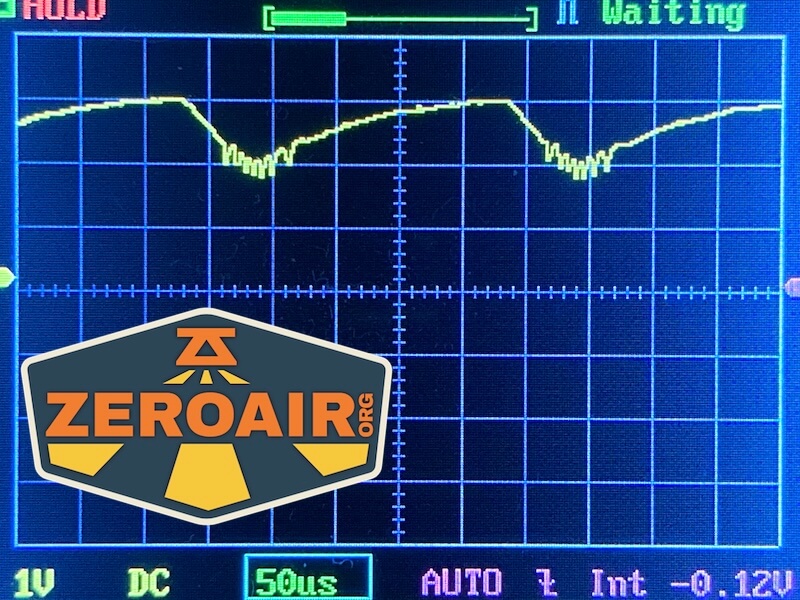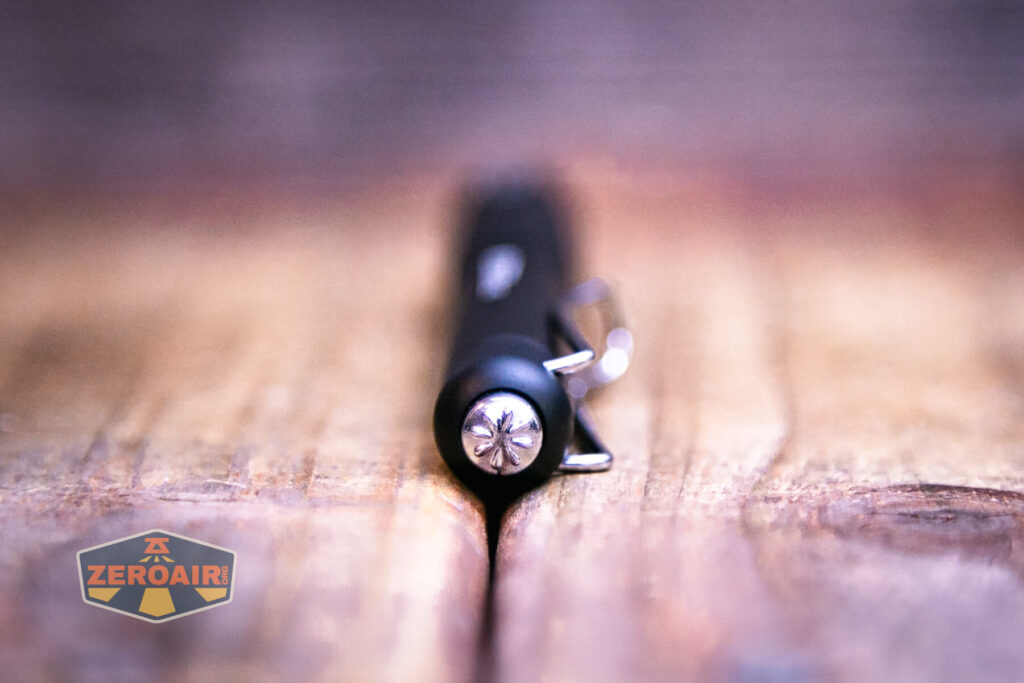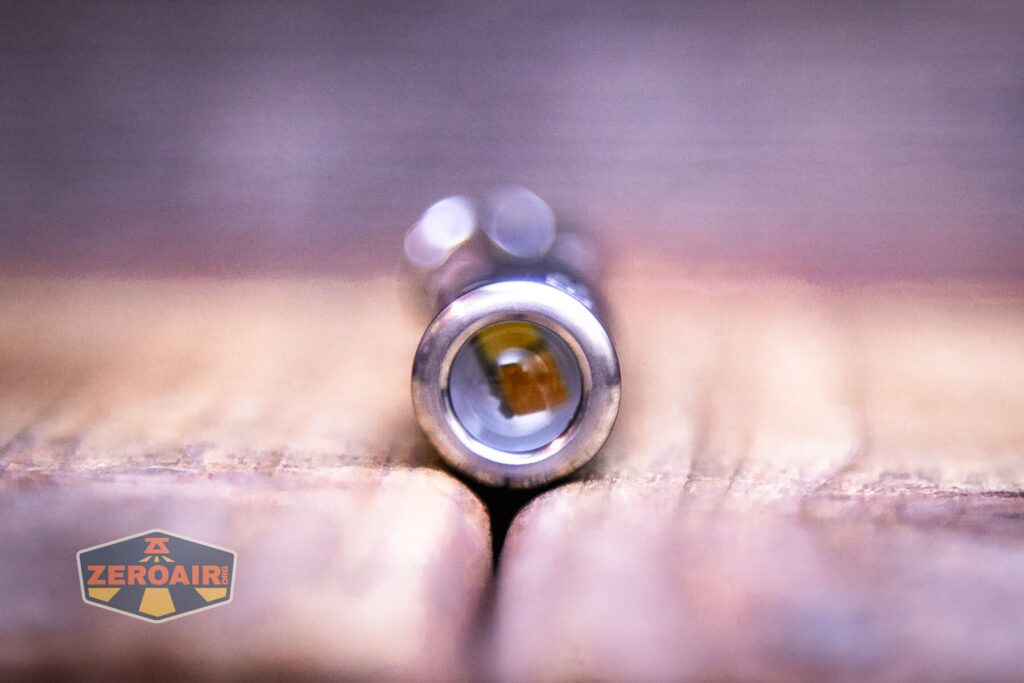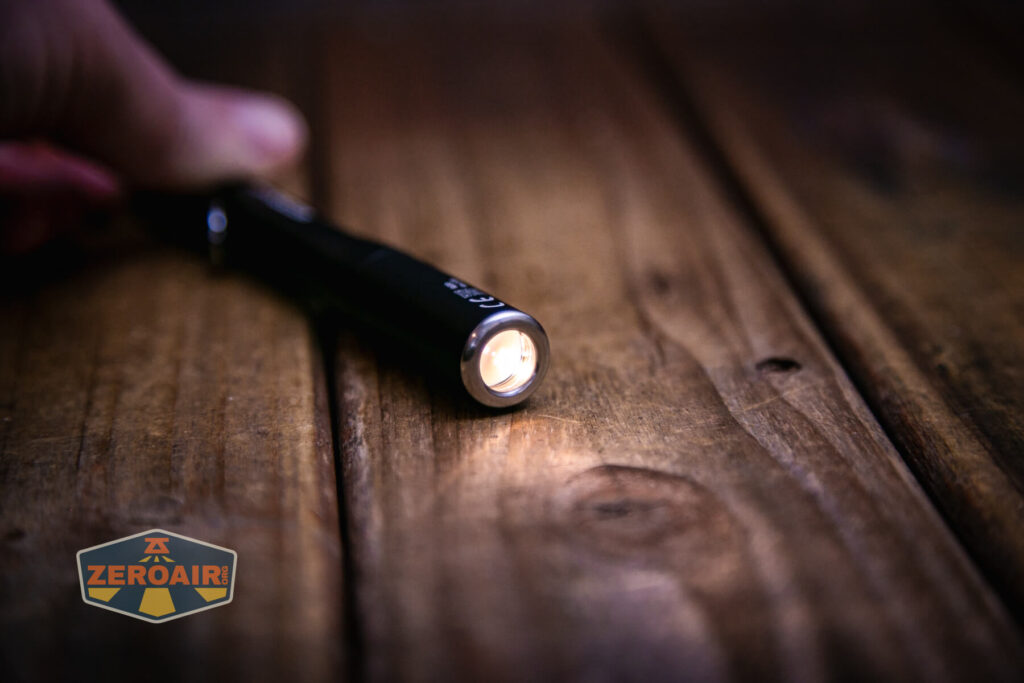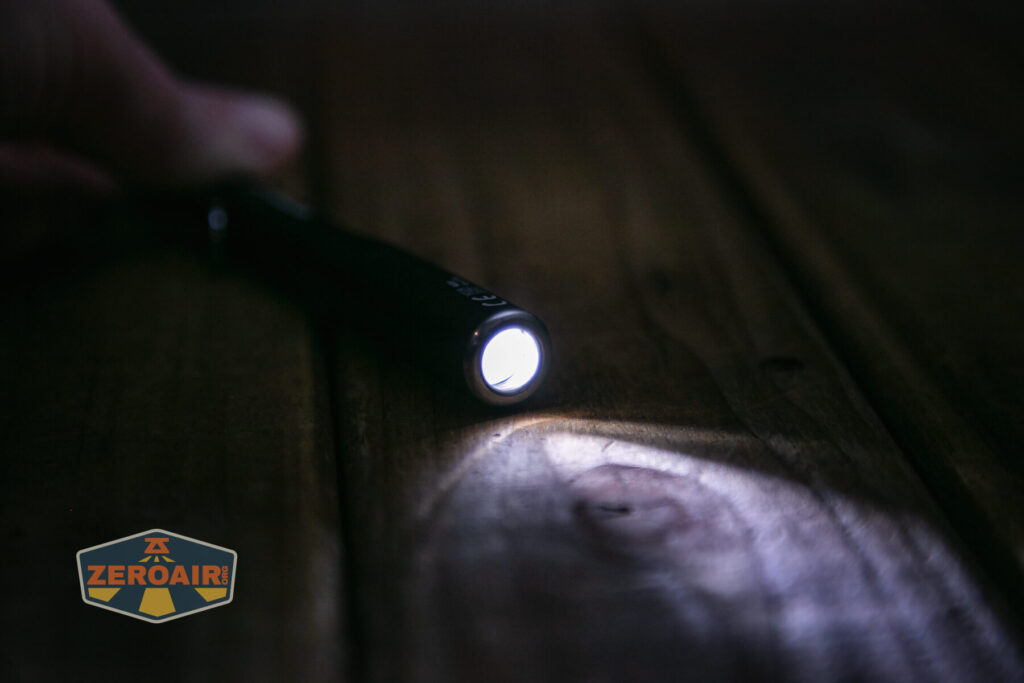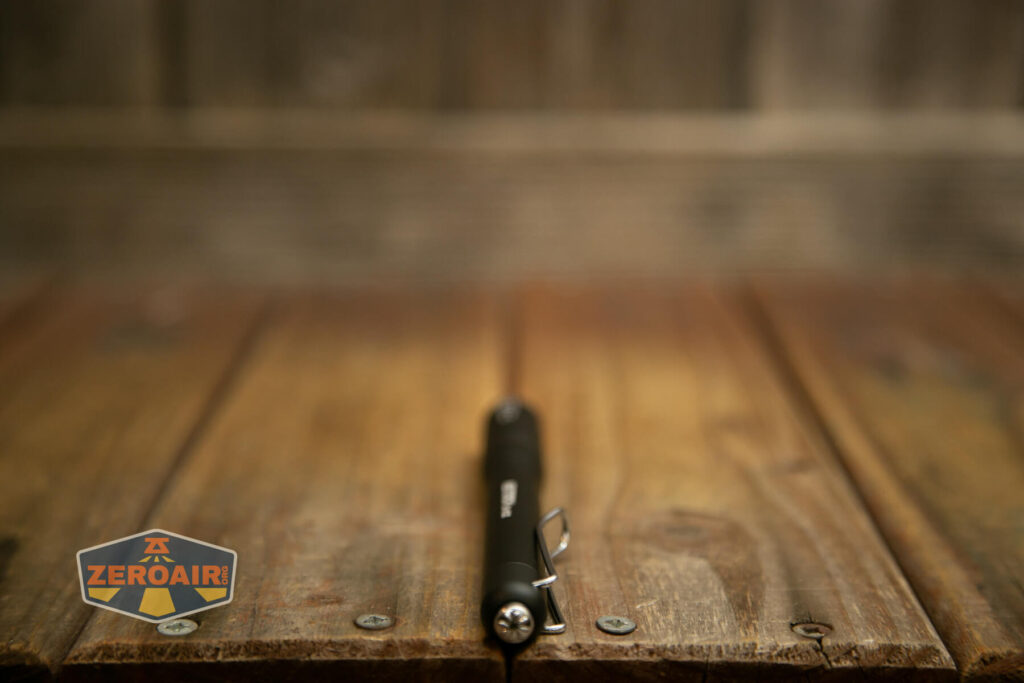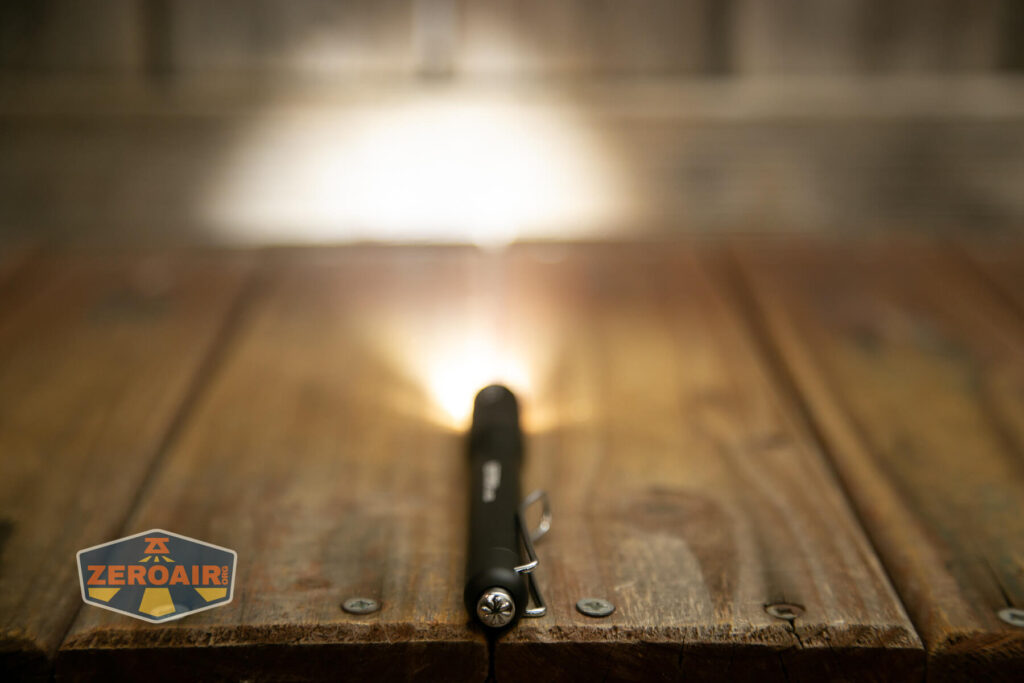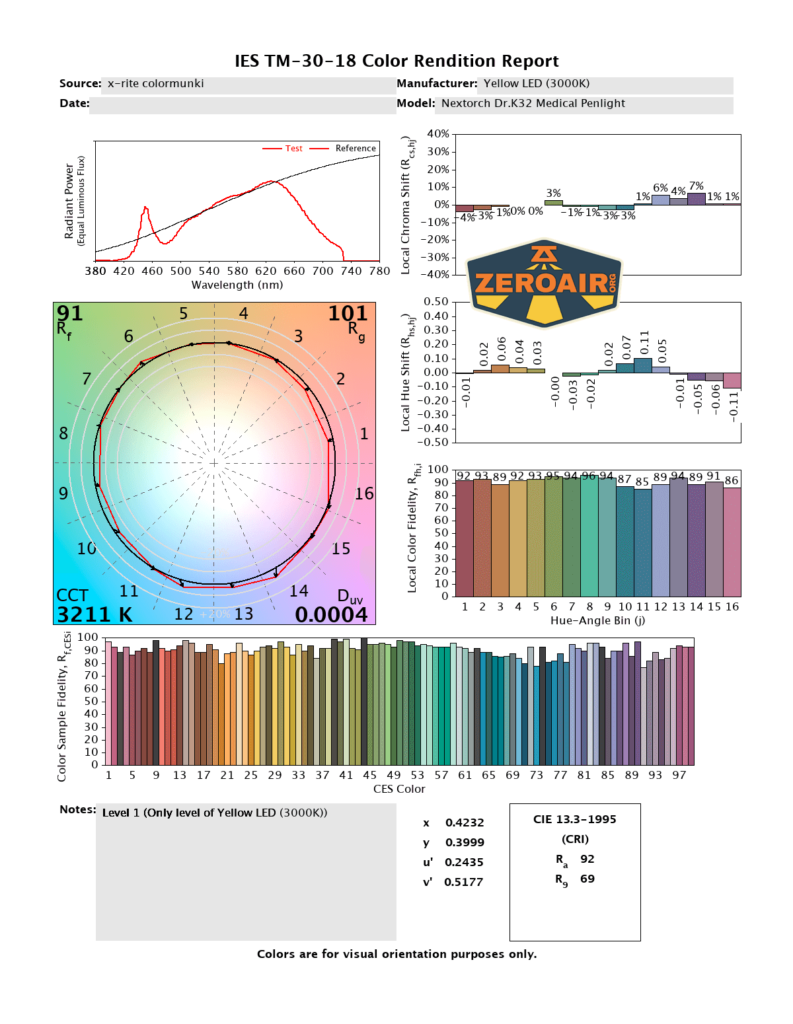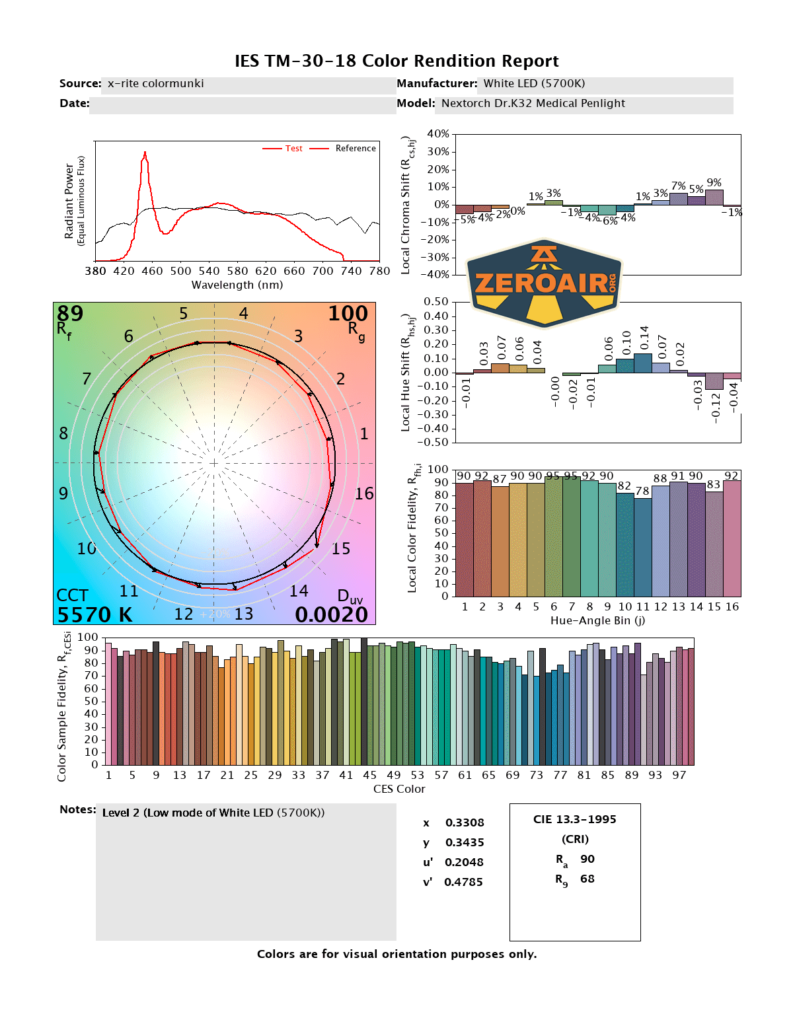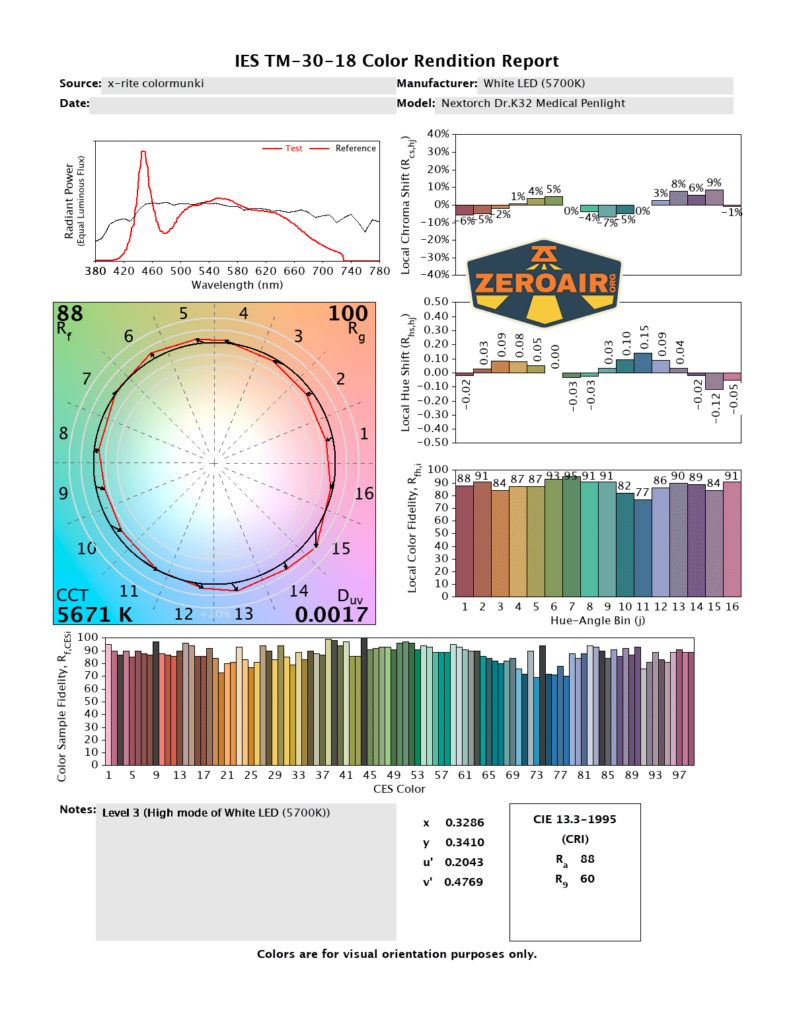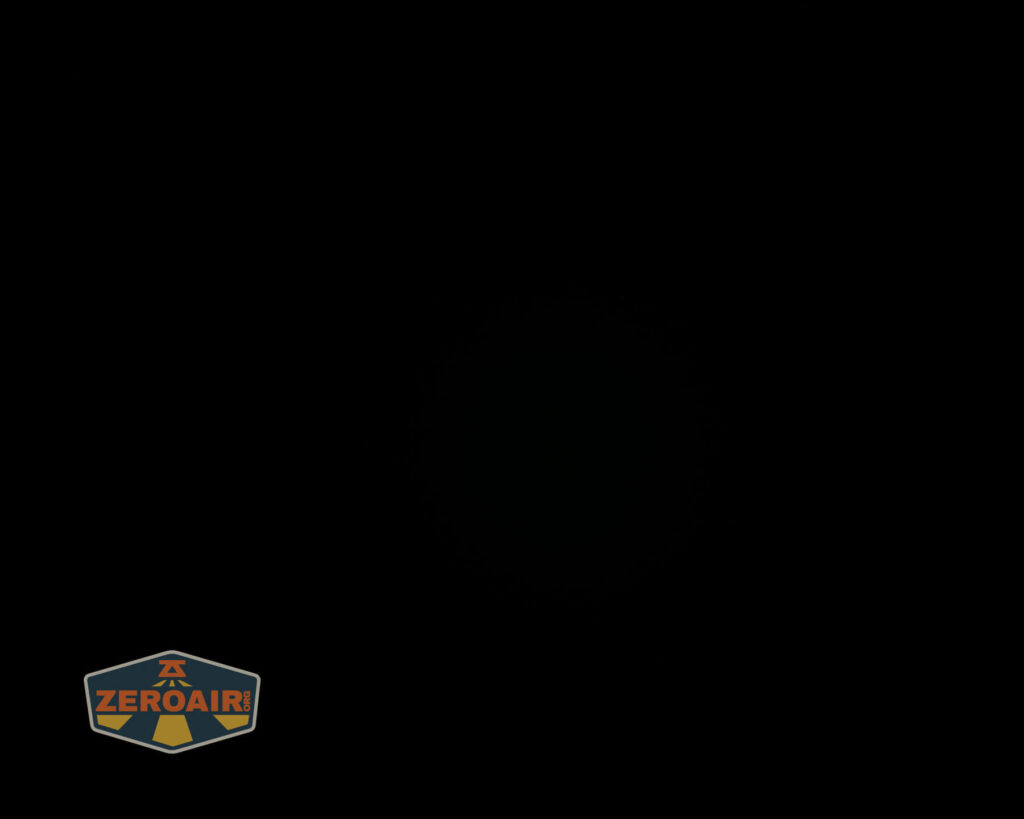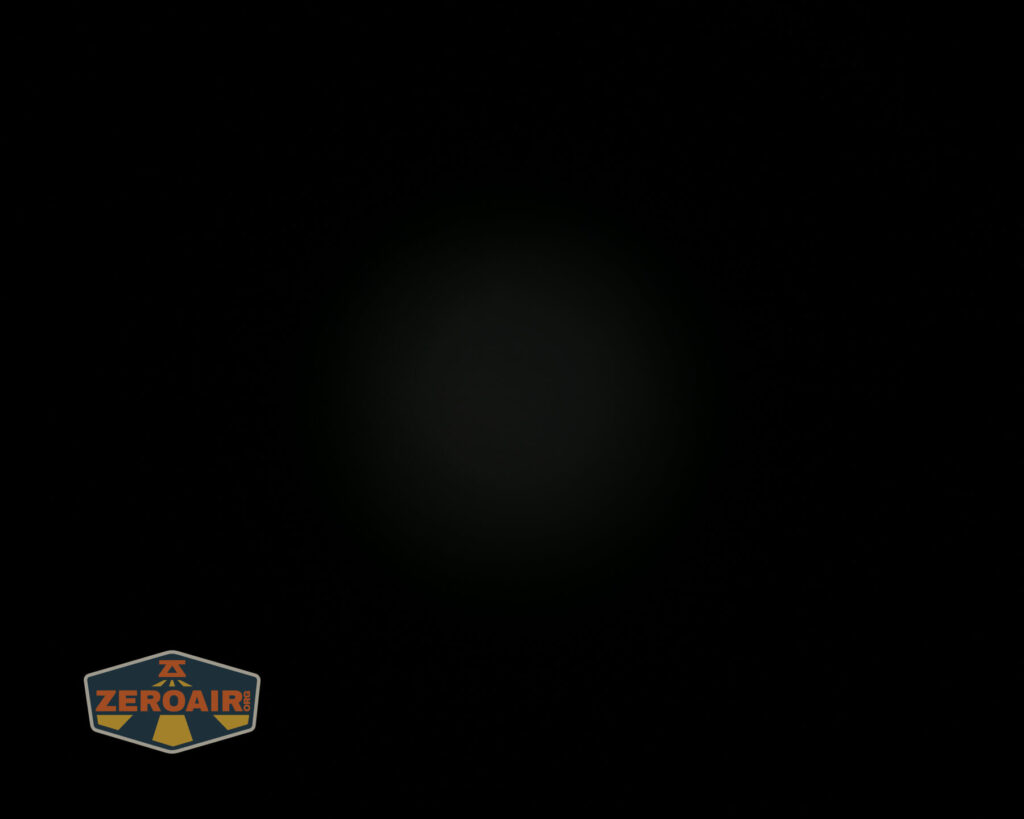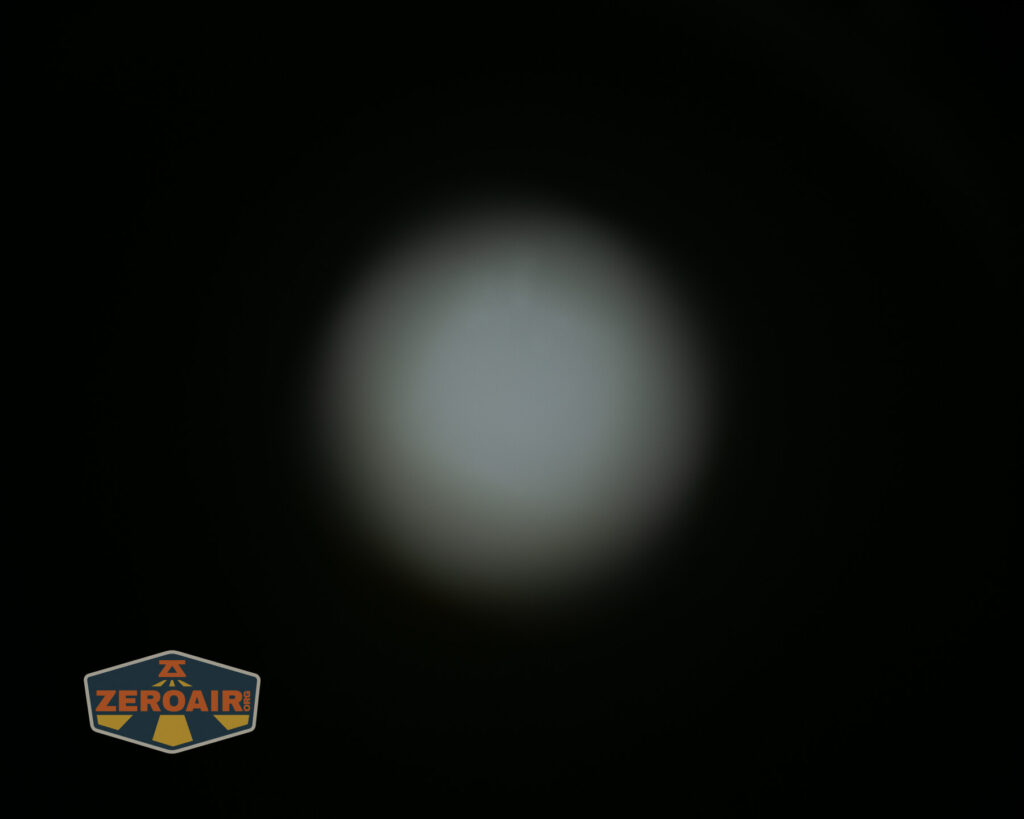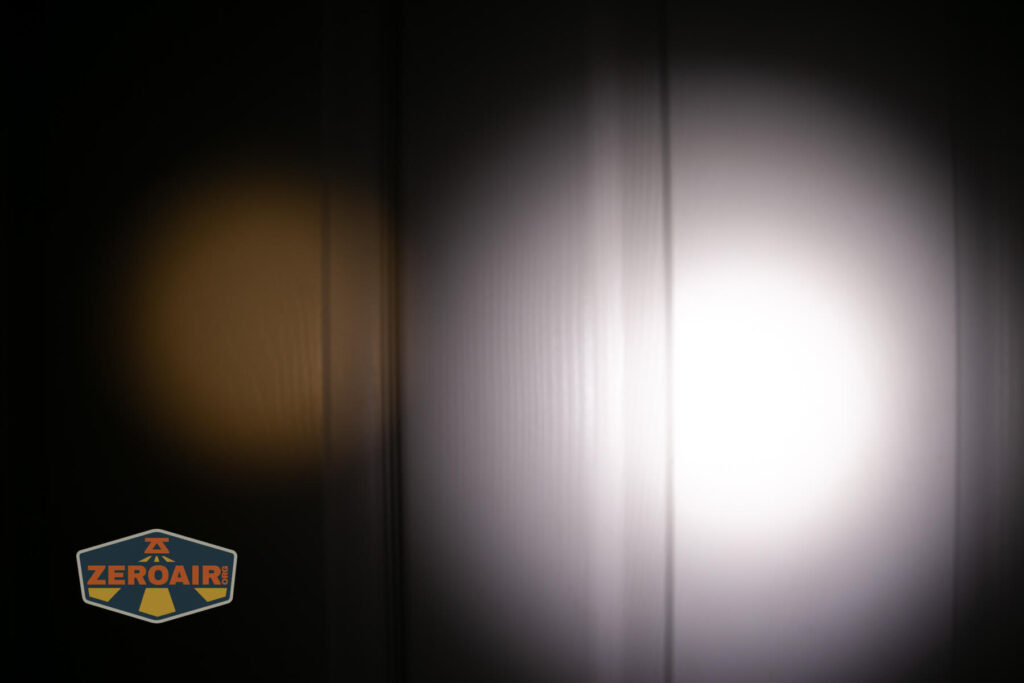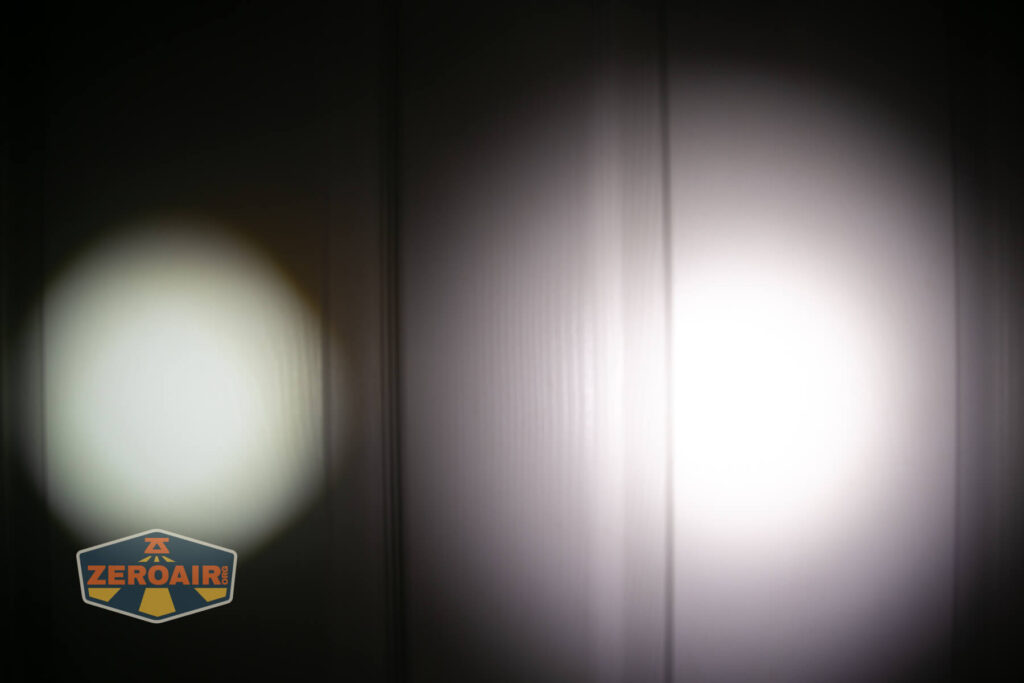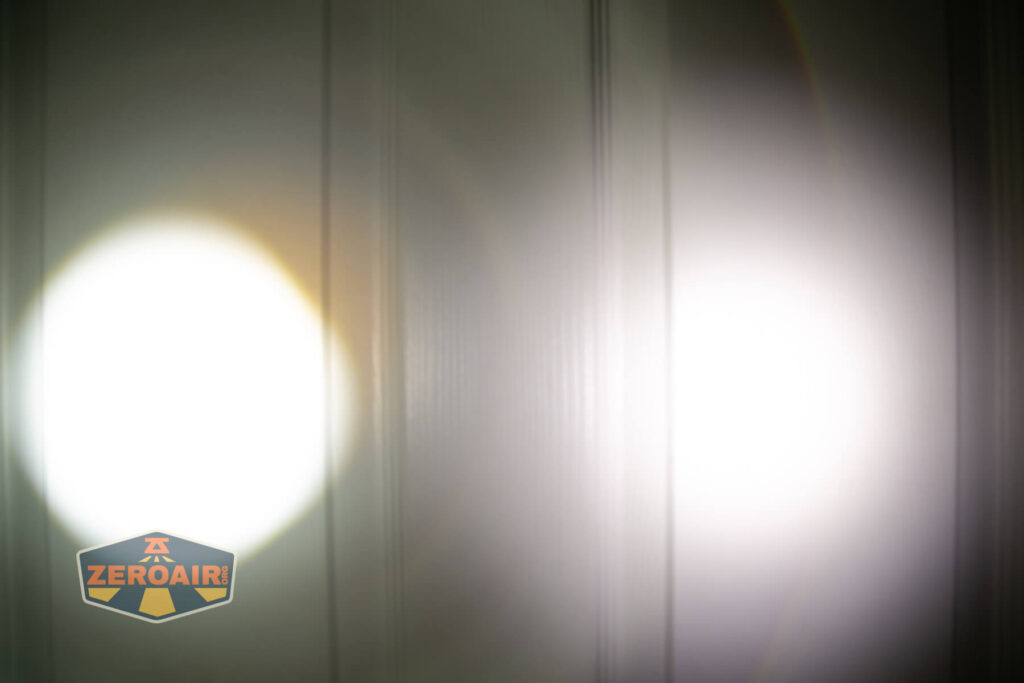Nextorch Dr.K32 Medical Penlight Review
The Nextorch Dr.K32 Medical penlight features dual emitters. It always starts on warm/low, but has two higher cooler levels, too. Great for medical!
Official Specs and Features
Here’s a referral link to the Nextorch Dr.K32 Medical penlight product page (referral link).
Versions
There’s just one version of the Nextorch Dr.K32 Medical penlight but this body (including the cell used) is available in at least a couple of other lights.
Price
The Nextorch Dr.K32 Medical penlight sells for $54.99 and is available now. That’s a referral link.
What’s Included
- Nextorch Dr.K32 Medical penlight
- Nextorch 650mAh 10880 cell
- Charging cable
- Manual etc
Package and Manual
Build Quality and Disassembly
The Nextorch Dr.K32 Medical penlight has to be appreciated for what it’s intended to be – a penlight for use by medical professionals. It doesn’t have what flashlight enthusiasts might consider some standard features – knurling, for example.
But the build quality is very good. It slips into the pocket neatly, and the pocket clip does not look excessively flashlighty.
Only the head comes off the Nextorch Dr.K32 Medical penlight. The threads are unanodized, and the positive contact is just a button.
Inside the (long) cell tube, you can make out a spring for the negative connection.
Size and Comps
DIMENSIONS: 149mm (L) x 16mm (head) x 13.2mm (body)
WEIGHT: 39g (without battery)
If the flashlight will headstand, I’ll show it here (usually the third photo). If the flashlight will tailstand, I’ll also show that (usually in the fourth photo).
Here’s the test light with the venerable Convoy S2+. The version below is a custom laser-engraved Convoy S2+ host by GadgetConnections.com. I did a full post on an engraved orange host right here! Or go straight to GadgetConnections.com to buy your Convoy S2+ now!
Also above is the light beside a TorchLAB BOSS 35, an 18350 light. I reviewed the aluminum version of that light in both 35 and 70 formats. I also reviewed that specific edition, the “Oveready BOSS FT Collector Vintage Brass” 35. I love it!
Retention and Carry
As stated above, the Nextorch Dr.K32 Medical penlight has a “friendly” pocket clip. I don’t know why you’d need a friendly pocket clip in a medical setting. Maybe you just don’t want to look like the nerd who carries a flashlight.
Either way, the pocket clip is sufficient. It grabs a pocket snugly.
Power and Runtime
The Nextorch Dr.K32 Medical penlight is powered by a single 10880 cell, which is included. That’s a bit of a weird size, but since it’s included we can give it a pass. I am not sure if Nextorch has these cells available for purchase separately.
The cell goes into the light in the usual orientation – positive end (button) toward the head.
This is a 4.2V cell, too – so while it’s probably two 10440 cells end to end, they are not connected in series. Because of that, you should not just drop two 10440 cells in the light (individually), because that’s over 8V, and will almost certainly kill the light.
Below are runtimes for all three modes.
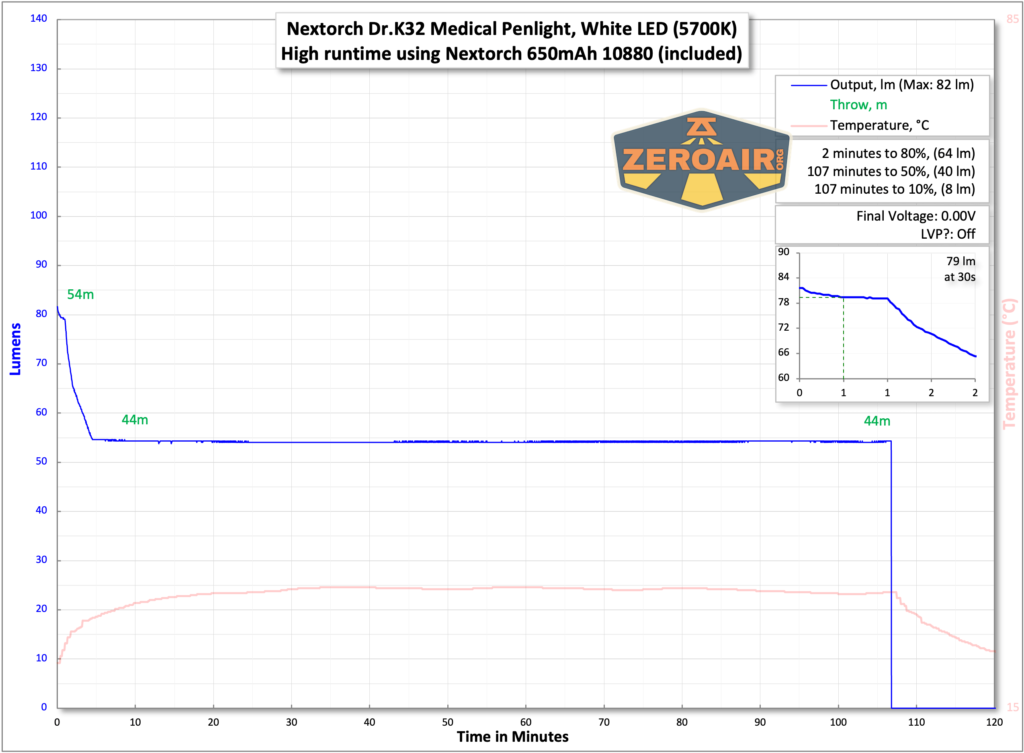
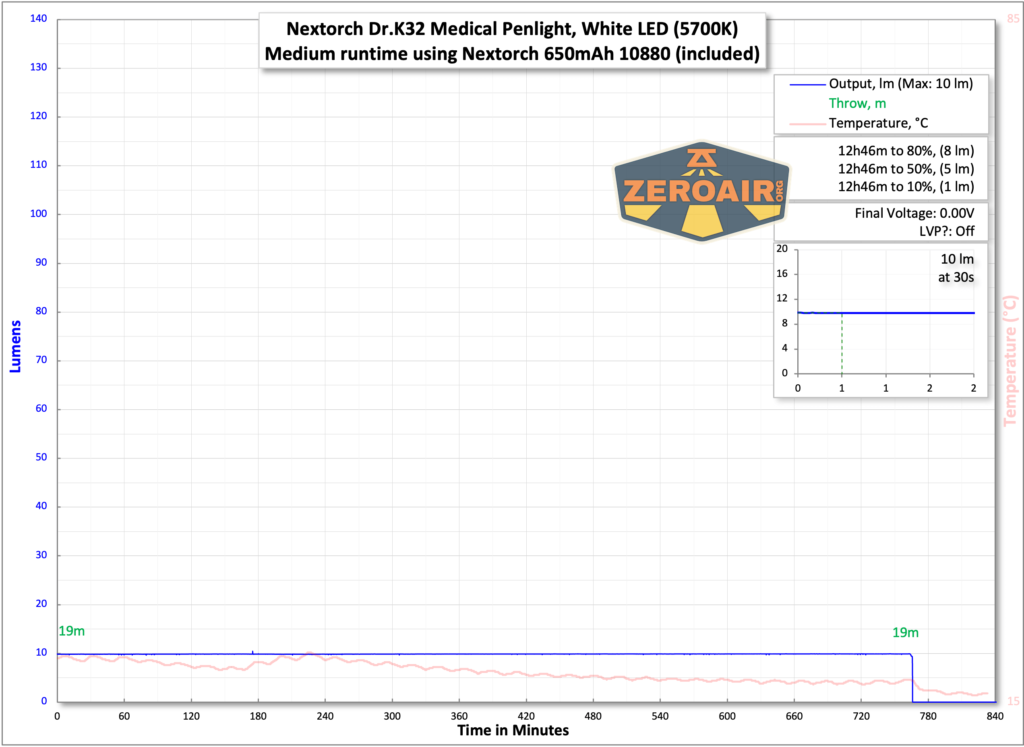
This runtime for the lowest level (3000K output) is not a full test – after 2.25 days I stopped the test. Suffice to say it’ll last “a while” at this level.
I believe the cell is protected because, on the higher output two tests, the cell voltage read “0V,” which usually means protection was tripped.
The manual also covers usage of the Dr.K32 with two AAA cells. Output is only minimally (and probably not even noticeably) lower. Runtime duration is about the same. That’s a huge win for this light!
Charging
The Nextorch Dr.K32 Medical penlight itself does not have built-in charging, but the included 10880 battery does. There’s a USB-C charging port on the positive end.
Nextorch includes a USB to USB-C charging cable.
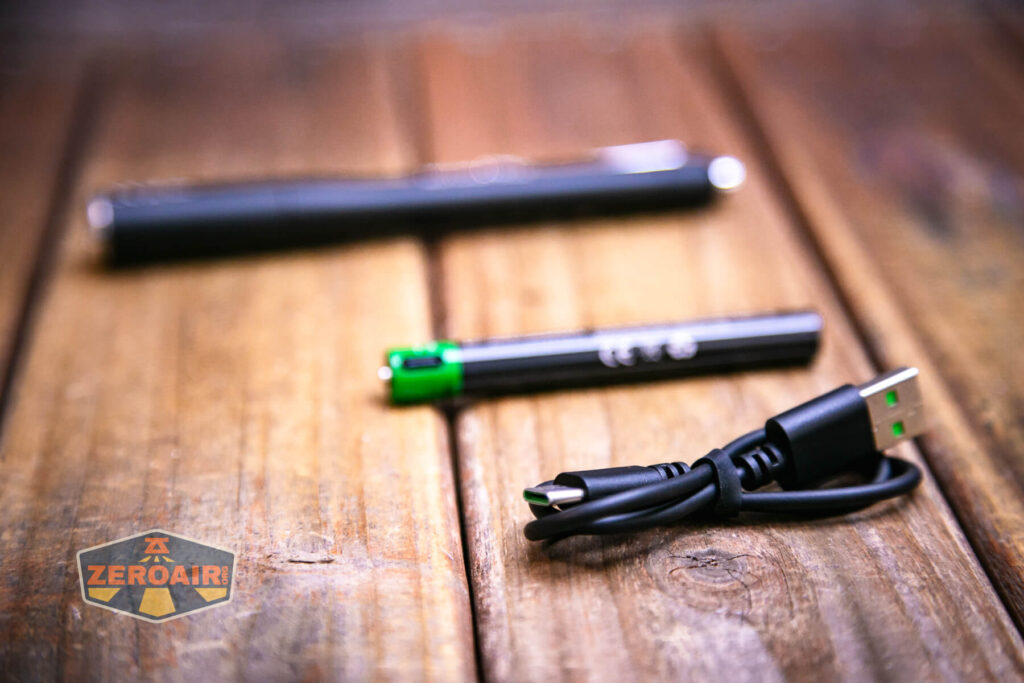
Charging via A to C or C to C is fine. both require around 1.25 hours and charge to around 4.2V.
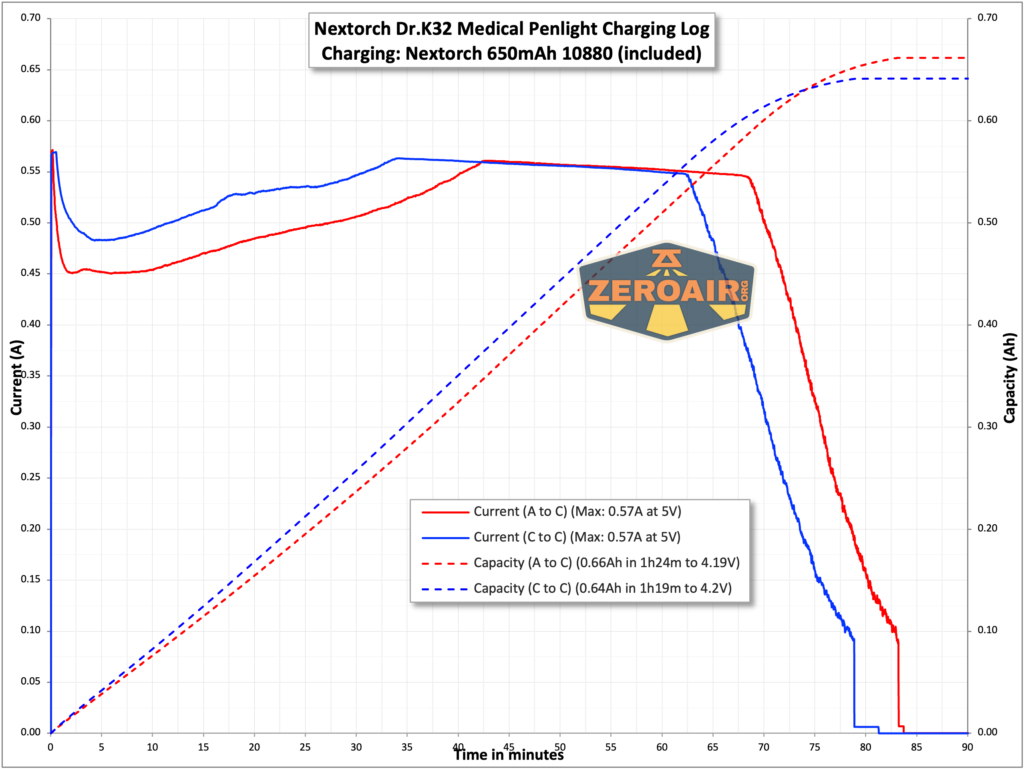
When charging is complete, a red LED on the positive end of the cell turns blue.
Modes and Currents
| Mode | Mode Claimed Output (lm) | Claimed Runtime with included 10880 | Measured Lumens | Tailcap Amps @4.2V |
|---|---|---|---|---|
| 5700K High | 80 | 1h45m | 79 | 0.44 |
| 5700K Low | 10 | 13h | 10 | 0.02 |
| 3000K | 2 | 80h | 1 | [low] |
Pulse Width Modulation
Each mode has some form of modulation, but it doesn’t appear to be PWM.
Here you can see a “baseline” – a chart with almost no light hitting the sensor.
Then there’s the Ultrafire WF-602C flashlight, which has some of the worst PWM I’ve seen. It’s so bad that I used a post about it to explain PWM! Here are multiple timescales (10ms, 5ms, 2ms, 1ms, 0.5ms, 0.2ms) to make comparing this “worst” PWM light to the test light easier. That post also explains why I didn’t test the WF-602C at the usual 50us scale.
User Interface and Operation
The Nextorch Dr.K32 Medical penlight uses a single switch. It’s a proud mechanical forward clicky.
I would go so far as to say that this switch cover is pen-like, too. That’s good since that’s the part that will be seen when the Nextorch Dr.K32 Medical penlight is in a pocket.
Here’s a user interface table!
| State | Action | Result |
|---|---|---|
| Off | Click | 3000K |
| Off | Tap | 3000k (momentary) |
| Off | Repeated taps | Momentary mode advance (ascending output) |
| On | Click | Off |
| On | Tap | Doesn’t change anything. |
LED and Beam
I don’t believe Nextorch states what these emitters are. One is “Yellow” (sic) 3000K and the other is a cooler white 5700K that offers two modes. These emitters are side by side, and that fact is borne out by the beam profile.
The beam profile sort of “leans” – the left emitter shines more prominently to the right and the right emitter shines more prominently to the left. This isn’t really a problem, and the beam shape is useful for the medical penlight nature of the Dr.K32.
LED Color Report (CRI and CCT)
Do again note that there are two emitters in the Nextorch Dr.K32 Medical penlight. First (leftmost) is the claimed-3000K emitter, which tests to right around 3200K. It’s also high CRI and nearly neutral.
The 5700K emitter tests just warmer than the claim, at around 5600K. It’s also high CRI (but not super duper high CRI).
Beamshots
These beamshots always have the following settings: f8, ISO100, 0.3s shutter, and manual 5000K exposure. These photos are taken at floor level, and the beam hits the ceiling around 9 feet away.
Tint vs BLF-348 (KillzoneFlashlights.com 219b version) (affiliate link)
I keep the test flashlight on the left and the BLF-348 reference flashlight on the right. These photos are taken around 18 inches from the door.
I compare everything to the KillzoneFlashlights.com 219b BLF-348 because it’s inexpensive and has the best tint!
Summary and Conclusion
While I don’t need a medical penlight, I will say that the 3000K warm white output is extraordinarily useful. In fact, I’ve been using this light around the house just because of the warm output and no mode memory. I know this light will always start on very low 3000K! You might never even use anything past that one output, in fact! The other two modes are good too, and in general the light is great. I’m inclined to say that $55 is a bit higher than I’d want to pay, though.
The Big Table
| Nextorch Dr.K32 Medical penlight | |
|---|---|
| Emitter: | Dual-emitter (3000K and 5700K) |
| Price in USD at publication time: | $54.99 |
| Cell: | 1×10880 or 2xAAA |
| Runtime Graph 1 | Runtime Graph 2 |
| LVP? | Cell may have onboard protection |
| Switch Type: | Mechanical |
| On-Board Charging? | Yes |
| Charge Port Type: | USB-C (on cell) |
| Charge Graph | |
| Power off Charge Port | – |
| Claimed Lumens (lm) | 80 |
| Measured Lumens (at 30s) | 79 (98.8% of claim)^ |
| Candela per Lumen | 9.05 |
| Claimed Throw (m) | – |
| Candela (Calculated) in cd (at 30s) | 52lux @ 3.732m = 724cd |
| Throw (Calculated) (m) | 53.8 |
| Item provided for review by: | Nextorch |
| All my Nextorch reviews! | |
^ Measurement disclaimer: Testing flashlights is my hobby. I use hobbyist-level equipment for testing, including some I made myself. Try not to get buried in the details of manufacturer specifications versus measurements recorded here; A certain amount of difference (say, 10 or 15%) is perfectly reasonable.
What I like
- Starts at very low 3000K
- High CRI (for both emitters, really)
- Simple user interface
- No strobe
- No mode memory
- Small ruler and some medical stuff! Great for the target market
What I don’t like
- Unusual cell
- Sort of difficult to grip
Notes
- This content originally appeared at zeroair.org. Please visit there for the best experience!
- For flashlight-related patches, stickers, and gear, head over to PhotonPhreaks.com!
- Please use my amazon.com referral link to help support zeroair.org!
- Please support me on Patreon! I deeply appreciate your support!



